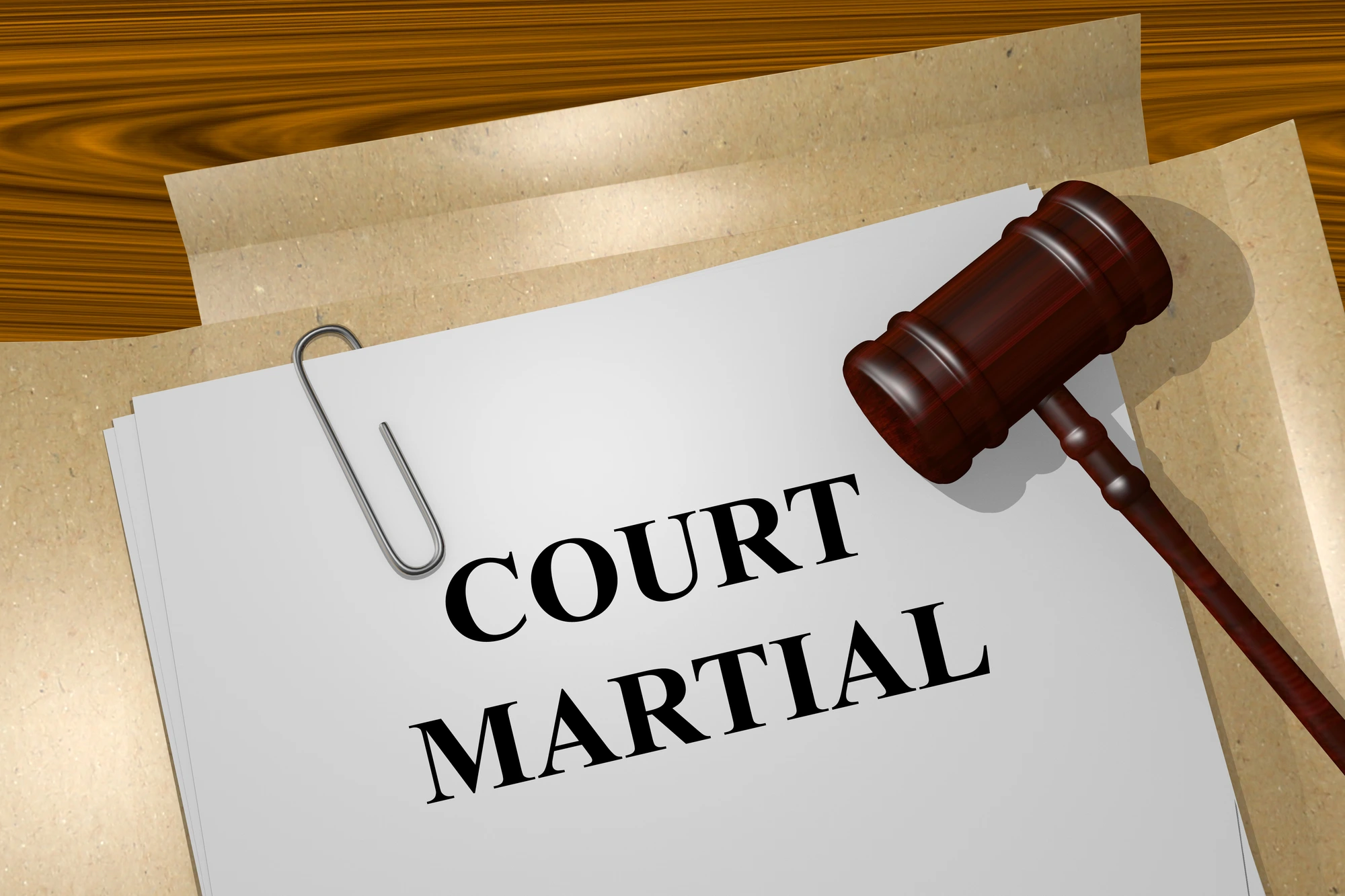What Is the Difference Between Military Law and Civilian Law?

When you join the military, your lifestyle changes drastically. Not only do you have to grow accustomed to living and working on base, but you also have to familiarize yourself with the rules and regulations associated with the military lifestyle.
What many people do not realize is that there are separate laws that apply to members of the military. Not only must an enlisted person follow civilian laws, but they must also follow military laws as well. If they fail to do so, they are subject to punishment, or even a trial, just like any civilian who breaks civilian laws.
Whether you are currently enlisted, are thinking of enlisting, or love someone who is enlisted in the military, it’s important to understand military laws and how they differ from civilian ones. Failure to follow the rules can result in severe punishment, including lifetime imprisonment and death.
Civilian vs. Military Law: Who Follows the Rules
Though military personnel are not civilians, they still must follow all of the same laws that civilians do. This includes laws that affect our day-to-day life, such as not trespassing, paying one’s taxes on time, driving the speed limit, etc. However, additional laws are added for military personnel, some of which apply whether they are on base or on leave.
Conversely, military laws do not apply to civilians. This is the case regardless of if the civilian is on base or not. To clarify, a civilian is not subject to military laws, even if they are on base or in a military-run location. They must still follow all civilian laws as they normally would and may be subject to rules and codes of conduct that are tailored to their location. Ultimately, however, a civilian cannot be summoned to a court-martial to be tried for military crimes.
Military Law
There are many laws that apply to military personnel, and they range from codes of daily conduct to restrictions for major offenses and crimes. When a member of the military has committed a serious offense, it’s usually in one of the following categories:
- Fraud or larceny
- Pay or allowance fraud
- Government property theft
- War and violent crimes
- Failure to report/AWOL
- Desertion
- Insubordination
- DUIs
- Sexual misconduct
Sexual misconduct is an especially broad category. Many of the offenses in this arena include adultery, online sex crimes, child pornography, sexual harassment, sexual assault, and fraternization.
Of course, some of these offenses are more serious than others. Though the military is strict about laws and rules, they do not require capital punishment for offenses that do not warrant it. The punishments are tailored to fit the crime.
Courts-Martial
Military laws are created under the Uniform Code of Military Justice, or UCMJ. There are many different laws in this code, and soldiers and military personnel must learn them when they enlist. Just like civilian laws, some are more serious than others.

When a member of the military breaks a minor law, they are summoned to summary courts-martial. It is here where a judge assesses the situation and hands out a punishment. In many scenarios, minor infractions lead to a decrease in rank or another small punishment.
As the laws get more serious, so does the court-martial. For moderate to serious infractions, the offending person is summoned to special courts-martial. This court level involves a panel of 3 peers to act as a jury for the case. In this court, punishments are more severe as well. Defendants can expect the following if they are found guilty:
- Hard labor for three months
- Confinement or jail time for one year
- Loss of pay for six months
- Discharge on the grounds of bad conduct
As you can see, many of these consequences are much more serious than the punishments in a summary court-martial.
The most serious infractions are brought to General Courts-Martial. The panel here is made up of 5 or 10 peers, depending on the case. For capital cases, ten is required. In General Courts-Martial, the defendant can expect severe punishment if found guilty. Some common punishments include:
- Dishonorable discharge
- Lifetime imprisonment
- Death
There is a lot at stake in a General Court-Martial, as the infractions represent some of the worst actions you can take as a member of the military.
Military Attorneys
If you have been accused of a crime, you will be assigned a free attorney by the military and government. This individual is essentially the military equivalent of a public defender. Though you may be tempted to use this attorney for your case, it is not wise to do so.
Military-assigned attorneys put defendants at a disadvantage. Many times, a defendant is not assigned an attorney until they’ve already been questioned and charged. The questioning process requires legal advice, and proceeding without it can diminish your case.
What’s more, military-assigned attorneys are often overloaded with work. Many defendants find that their attorney is unable to give them proper time and attention, which can cause the defendant to lose their case.
The best course of action is to hire a military civilian defense attorney. We function just as any other civilian attorney would, but we have training and expertise in military law. We can provide personalized, hands-on legal advice through every step of your case. No matter what you are up against, a military civilian defense attorney can give you the time and attention that you deserve for your case. This gives you a much better chance of winning and avoiding life-ruining consequences.
Contact Aaron Meyer Law for Military Civilian Defense
If you need a military civilian defense attorney who can win your case, our team at Aaron Meyer Law is here for you. With years of experience in military law, in addition to time served in the military, our team provides you with the comprehensive military legal advice that you deserve. We have an impeccable track record and are confident that we can help you move forward after an accusation. We believe that those who serve our country and protect our freedom should have their freedom protected as well. We are here to do that.
For more information, please contact our offices today.
Request A Free Consultation
Fields Marked With An “*” Are Required
"*" indicates required fields
© Copyright 2026 Aaron Meyer Law • All rights reserved.

